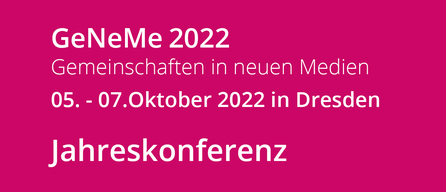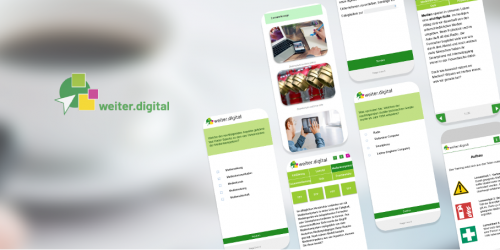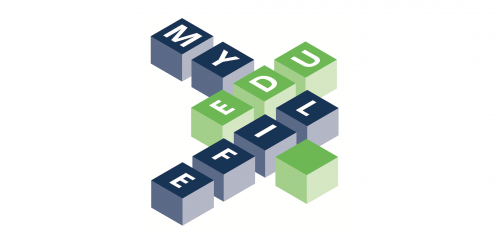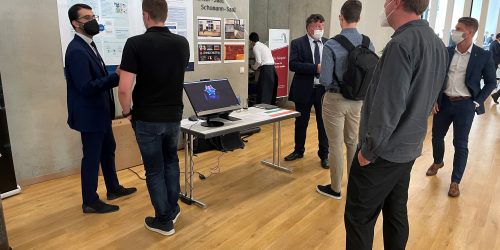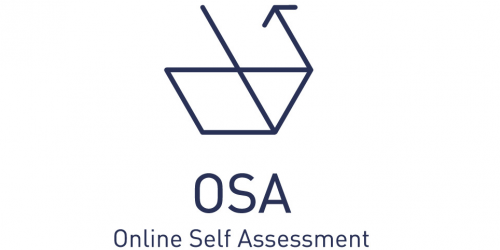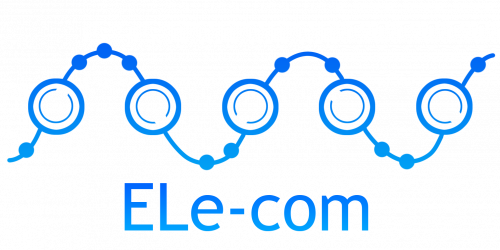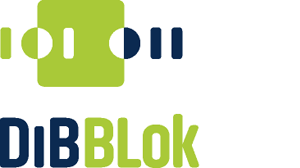Call for Papers: GeNeMe 2022 – Digitality and Diversity
The GeNeMe "Communities in New Media" looks particularly at online communities at the interface or from the perspective of several disciplines such as computer science, media technology, economics, education and information science, and social and communication science. As a forum for transdisciplinary dialogue between science, business, organizations and administration, it enables the exchange of experience and knowledge between participants from a wide range of disciplines, organizations and institutions. The focus of this year's GeNeMe is...

